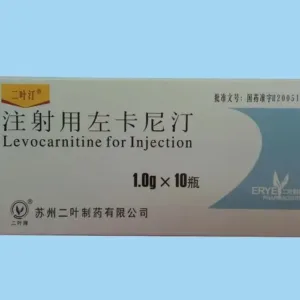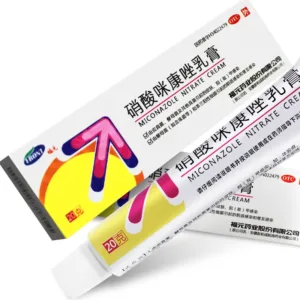Levocarnitine for Injection
Effects and efficacy: This product is mainly used to prevent and treat L-carnitine deficiency, such as a series of complications caused by secondary carnitine deficiency in patients with chronic renal failure and long-term hemodialysis, clinical manifestations such as cardiomyopathy, skeletal myopathy, arrhythmia, hyperlipidemia, hypotension and intradialytic muscle cramps.
Usage and Dosage: When the plasma L-carnitine concentration is lower than the normal range (40-50μmol/L), start treatment immediately. The recommended starting dose is 10-20mg/kg, dissolved in 5-10ml of water for injection, and injected intravenously for 2-3 minutes after hemodialysis; adjust the dose in the 3rd or 4th week of treatment (such as reducing the dose to 5mg/kg). Please follow the doctor’s advice for details. Note: The injection solution needs to be prepared with 0.9% sodium chloride injection or lactated Ringer’s injection to a concentration of (250-4200) mg/500ml (i.e. 0.5-8mg/ml). Before parenteral treatment, it is recommended to measure plasma carnitine levels and monitor weekly and monthly, including blood biochemistry, vital signs, plasma carnitine concentration and systemic condition.
Adverse reactions:
The adverse reactions of this product are mainly transient nausea and vomiting, special body odor, nausea and gastritis. Intravenous injection of L-carnitine can cause epileptic seizures. After taking the drug, patients with a history of epilepsy may induce epilepsy or aggravate epilepsy. Allergic reactions may also occur after taking the drug, such as bronchospasm, laryngeal edema, facial edema, rash, urticaria, etc.
Drug contraindications:
This product is contraindicated if you are allergic to it.
































